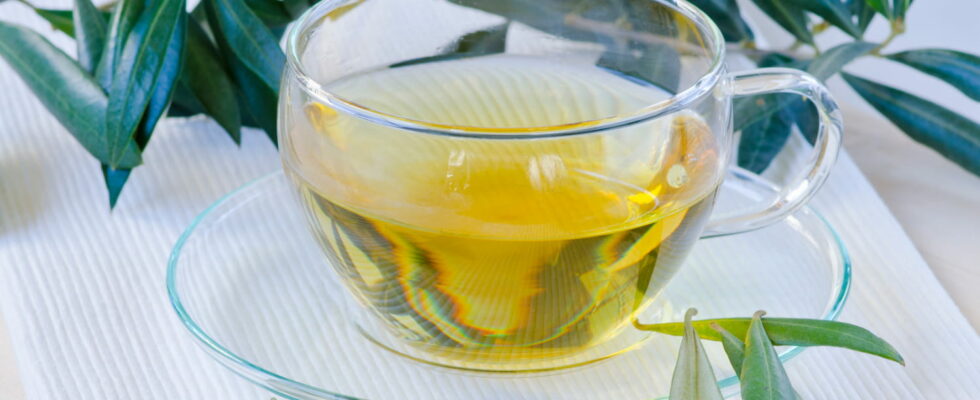Just make a herbal tea.
Cholesterol is essential for the proper functioning of our body, as long as its level remains moderate. Bad cholesterol and good cholesterol must be balanced to avoid increasing the risk of cardiovascular accidents. LDL cholesterol (the bad one) promotes the formation of lipid deposits on the walls of the arteries. This phenomenon leads to a progressive loss of elasticity of the arteries and a reduction in their diameter with a risk of obstruction. In addition to diet and physical activity, you can also try natural solutions to lower your cholesterol. Dr Carole Minker, doctor of pharmacy and pharmacognosy, gives us a good remedy.
These are actually the leaves of a very well-known tree. They are recommended for their virtues “antioxidant, antihypertensive, hypoglycemic, hypocholesterolemic and cardioprotective” according to the specialist. Thanks to its main active compound called “oleuropein”, which acts in synergy with “totum”, the extract of this leaf “reduces blood levels of total cholesterol, LDL cholesterol and triglycerides”continues the expert.
This famous leaf is none other than the olive leaf. Although olive oil is already known for its many benefits, its leaves should not be neglected. “Olive leaf promotes good cardiovascular functioning and can help lower blood cholesterol levels” says Dr. Minker. And to use it, nothing could be simpler, just make a herbal tea. “We generally recommend between 500 and 200 mg of oleuropein per day. The infusion is possible at a rate of 1 teaspoon of dried olive leaves 1 to 3 times per day.“You can add garlic, moringa, turmeric to your infusion… And if the infusion is not enough to lower your cholesterol level, or you don’t like the taste, there are other ways to consume them. “It can be used in powder form to add to food. Recent studies also point to the benefit of combining olive leaf and fruit extracts” adds the specialist.
If you don’t have an olive tree in your garden, this is not a problem. Its leaves are available in pharmacies, herbalists and natural health stores. Warning: olive leaves are contraindicated in cases of heart or kidney disease, pregnancy, breastfeeding and in children. Finally, “check your cholesterol levels regularly if you are taking treatment for excess cholesterol.”
Thanks to Dr Carole Minker, doctor of pharmacy and pharmacognosy and author of the book “Le Petit Larousse de l’Herboristerie” published by Larousse.
